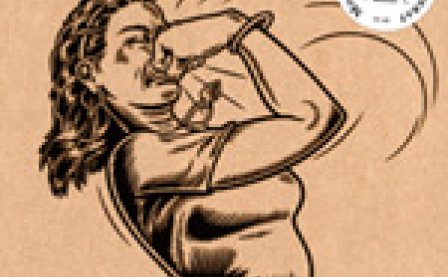There’s a vague temptation when listening to Moderat to divide their output into halves, to scour for the obvious signatures of Modeselektor, on the one hand, and Apparat, on the other. Why anyone would want to do this is probably more a product of individualistic politics than it is of musical concerns, but even so, the Berliners’ second album, II, may invite the suggestion that it’s little else besides a sequence of subtly conflicting dichotomies, pitting the brash animation of Gernot Bronsert and Sebastian Szary against the reflective introversion of Sascha Ring. Yet aside from a few obvious instances where the two faces of Moderat cut and paste their distinctive wares immediately against each other, their sophomore album is, on the contrary, an almost seamless fusion of their respective stylings, an amalgamation that further corrodes the already diseased notion of the autonomous and self-contained author. Over the ambit of starry-eyed breakbeat, transfixed dubtronica and imminently transcendent EDM, the trio/duo negotiates and mixes itself into an all-but indivisible unity, strengthening individual traits precisely where said traits are also being diluted.
In the beginning, however, the second meeting of these two operators is conspicuously disjunctive. After the album’s primordial introductory interlude, “Bad Kingdom” reels itself into a high-powered gallop, its energized snares underwriting a bulbous fizz of a sideways riff that periodically swaps places with an expanse of faraway sentiment and an emoting male dance vocal. Here it’s easy to guess that the former segment “belongs” to Modeselektor and the latter to Apparat, and while the two sections bounce off and contrast with one another to kaleidoscopic effect, there’s a niggling presentiment that the two parties are barely in communication with each other, speaking at cross-purposes and largely failing to adjust themselves to what the other has to say.
Fortunately, this oblivious (as well as futile) denial-of-the-other doesn’t last long. For most of the album, the dyad of artistic voices and palettes on offer are melded more than they’re serialized into a scarcely interactive collage, with the consequence often being songs that imbue the navel-gazing romanticism of Moderat with the muscle and dynamism of his collaborators. We see this during “Therapy,” where the initial drafts of bereaved synthesizer and laconic vocal sampling are sharpened and volumized by the pulsing of a characteristically distorted bass and a laden beat, and where an obstinate, questing parabola of static intermittently erupts with both the sonic density of Bronsert & Szary and the emotional sublimity of Ring. We see it again with “This Time,” which begins in a similarly understated and subdued way with what sounds like the sustained, fettered chords of an electronic organ, before a recurring field of Modeselektor’s heavyset buzzing intensifies the chords’ filmy pathos.
Yet all this talk of who’s responsible for what is probably misleading (and false), since the very name Moderat is itself recognition of the transubstantiation that occurs in the field of art, or rather when the self, in the transposition from one context and set of peers to another, has its output/being expropriated all over again. Admittedly, it’s true that each of the ideas on display throughout had to have passed at a certain point, and in some form or another, through the brain of one of the trio’s members, but the conceptual import of II resides in its tacit support for the notion that as soon as these ideas are conceived, they’re transformed and repossessed, not just by their eventual reception, alteration, and authorization at the hands of others, but by their originator’s unconscious premonitions and pre-emptions of how they’re likely to be received, of what their audience is likely to expect. Thus, the group’s music plays out the abstract drama of the individual’s inexorable modification and recreation before a judgmental other, who would withhold acceptance and validation if the subject didn’t conform to his/her pleasure, and to whom the subject sooner or later willingly submits.
And occasionally, it seems as though Modeselektor undergo more submission, adulteration, and watering down than Apparat, at least judging by the extent to which the album is a predominantly anhedonic and cathartic affair. Sometimes this is a very good thing, as with the 10-minute “Milk,” which in its flowing and bunching of aquiferous swells more or less functions as II’s incrementally epiphanic centerpiece. But sometimes it isn’t a very good thing, as with the vaguely monotonous “Versions,” which unlike the above piece doesn’t benefit from any Modeselektorian influx of momentum, gravity, or mass, and which merely whishes [sic] through the same predominantly undifferentiated flue of numbed ennui. It’s with such a track that the album comes less to seem like an egalitarian convergence of sensibilities and more like a pet project that’s been airbrushed and touched up a little (i.e., with the nearly hip-hop beats) so as to pay lip service to certain elements and factions.
But despite this minor flaw, II is, on the whole, worthy of the names and histories that have coalesced and been commingled in its making. The two sides of its conception are for the most part mutually reinforced by each other as well as taken in occasionally novel directions, and while this could be regarded as a contamination of the “pure” Modeselektor and the “pure” Apparat, it could just as easily be answered that such two entities have never existed.
More about: Moderat



